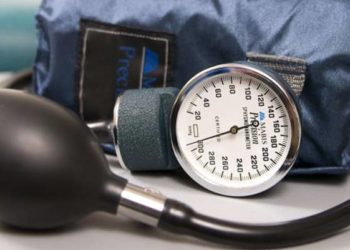ACE-inhibitor use associated with decreased conduction system disease
1. In this secondary analysis of the Antihypertensive and Lipid-Lowering treatment to prevent Heart Attack Trial (ALLHAT), lisinopril was associated with decreased incidence of conduction system disease when compared with the other antihypertensive medications, amlodipine and chlorthalidone.
2. Clinical factors associated with increased risk of conduction system disease included increased age, male sex, white race, diabetes and left ventricular hypertrophy.
Evidence Rating Level: 2 (Good)
Study Rundown: Different types of cardiac conduction diseases are associated with increased morbidity and mortality. The ALLHAT trial was conducted to study how antihypertensive medications and treatment of dyslipidemia affected cardiovascular mortality and morbidity. This secondary analysis of the ALLHAT trial data aimed to determine if this pharmacological management affected the incidence of cardiac conduction system disease.
When comparing antihypertensive medications, lisinopril was associated with a reduced incidence of developing cardiac conduction disease compared with the other medications studied, chlorthalidone and amlodipine. Clinical factors associated with increased incidence of disease were age, male sex, white race, diabetes and left ventricular hypertrophy. Strengths of the study included long-term follow-up and a large cohort size. Limitations of the study included design, which was a post-hoc secondary analysis that was not designed to study this clinical question.
Click to read the study, published today JAMA Internal Medicine
In-Depth [randomized controlled trial]: This study was a secondary analysis of the original ALLHAT study, and conducted to determine the effects of antihypertensives and statin on development of cardiac conduction disease. The original ALLHAT study was a double-blind, randomized trial was conducted in 623 North American centers from 1994 to 2002. Individuals 55 years or older with hypertension and one other cardiac risk factor were included. Those with history of hospitalization for heart failure, severe diastolic or systolic dysfunction were excluded. Patients were randomized to chlorthalidone, amlodipine or lisinopril. All patients underwent baseline ECGs and in this analysis the study population was limited to those without evidence of conduction system disease on their baseline ECG. Follow-up ECGs done every 2 years monitored for incident conduction disease (first-degree atrioventricular block, left anterior fascicular block, incomplete left bundle branch block (LBBB), LBBB, incomplete right bundle branch block (RBBB), RBBB, or intraventricular conduction delay.
Mean follow-up of the 21 004 participants was 5.0 years. Of these, 1114 participants developed conduction disease (570 with RBBB, 389 with LBBB, 155 with intraventricular conduction delay). Overall incidence was 13.0 (95%CI 12.2-13.7) per 1000 person-years for conduction disease. Compared to chlorthalidone, lisinopril was associated with a significant decrease in conduction system disease (HR 0.81; 95%CI 0.69-0.95; p = 0.01). Treatment with amlodipine, or pravastatin was not associated with a significant difference in conduction disease incidence. Clinical factors that were independently associated with increased risk for conduction system disease were increased age, male sex, white race, diabetes and left ventricular hypertrophy.
Image: PD
©2016 2 Minute Medicine, Inc. All rights reserved. No works may be reproduced without expressed written consent from 2 Minute Medicine, Inc. Inquire about licensing here. No article should be construed as medical advice and is not intended as such by the authors or by 2 Minute Medicine, Inc.







